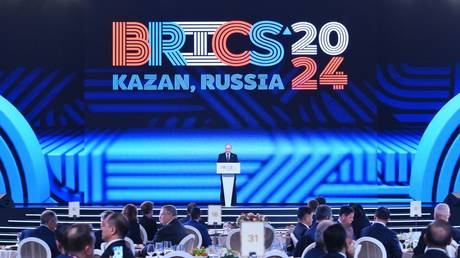Ethiopia’s digital economy could spur over 1.3 trillion Ethiopian birr (over $10.8 billion) to GDP by 2028, according to the Global System for Mobile Communications or GSMA’s report.
In its report revealed on Thursday in Addis Ababa, the capital of Ethiopia, GSMA highlighted how Ethiopia’s telecom reforms and investments in mobile technology are catalyzing growth in key sectors such as agriculture, manufacturing and public services.
The report said these advancements are expected to create over 1 million new jobs and generate an additional 57 billion birr ($475 million) in tax revenues by 2028.
GSMA said Ethiopia’s telecom reforms under a home-grown economic reform program have driven major progress by 2023, contributing over $5.8 billion to GDP.
It said mobile internet connections grew by 65 percent with 4G coverage expanding eightfold. Key players Ethio-telecom and Safaricom Ethiopia have been instrumental in driving this growth through expanded mobile internet access and increased competition in the telecom market.
The report indicated that Ethiopia has a high level of 2G and 3G converges with the 4G covering a small portion of the country while handset affordability, producing locally relevant content and lack of digital skills among consumers were reported as major challenges of the telecom sector.
By 2028, over 50 million Ethiopians – nearly double of today’s figures –are expected to be connected to the mobile internet, according to the report. “Increased connectivity will drive growth across sectors like agriculture, adding close to $1.17 billion, and manufacturing, contributing $950 million by 2028,†said GSMA’s report.
However, according to the report, a substantial usage gap persists with 76 percent of the population not using mobile internet despite living within net coverage.
“Bridging this gap, particularly the 40 percent gender disparity in mobile internet use is crucial for Ethiopia’s digital future. With targeted policy reforms, this gap could shrink to 66 percent by 2028, bringing millions more Ethiopians online,†said the report.
With regard to mobile money and financial inclusion, the report said mobile money, with 90 million registered accounts and 70 percent penetration is a crucial driver of financial inclusion. As these services grow, they will play an increasingly important role in boosting both digital and financial inclusion, further contributing to the country’s economic development.
The report recommended the need to prioritize service affordability, fast telecom reforms, improve device affordability and mobile money services among others.
MG/as/APA
